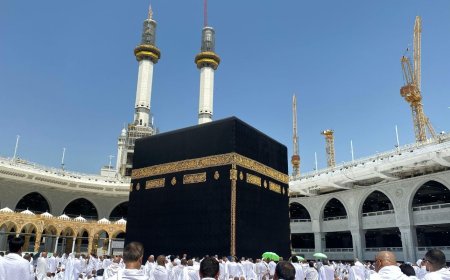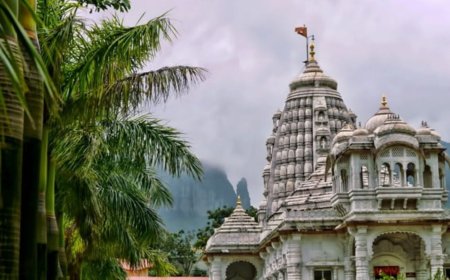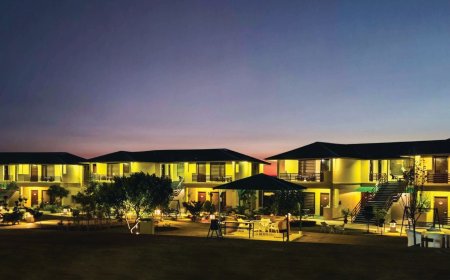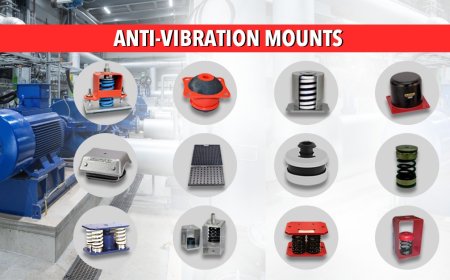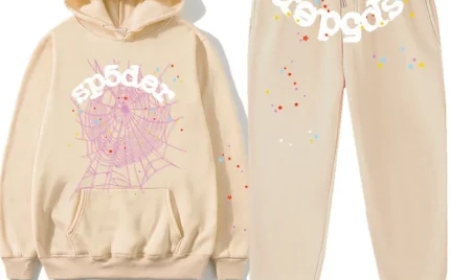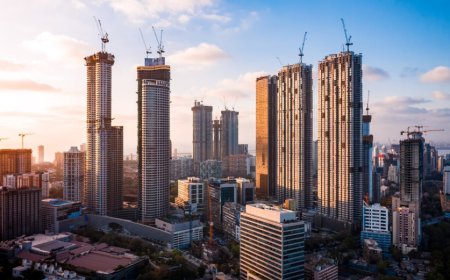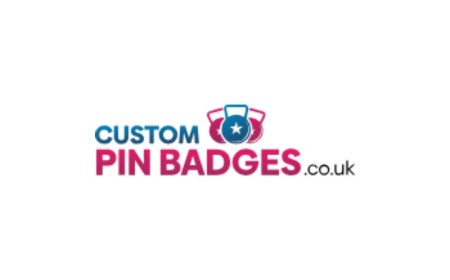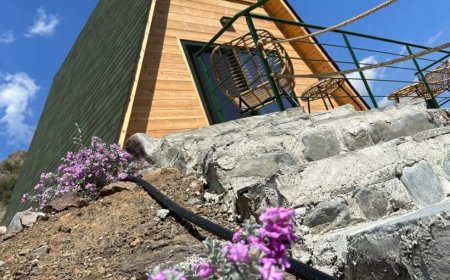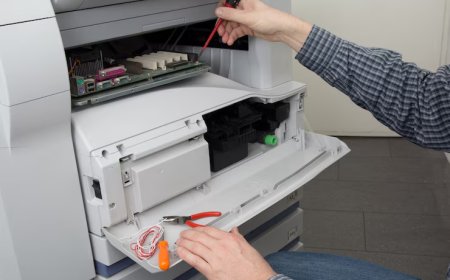Top 10 Washington Markets for Souvenirs
Introduction Washington State is a land of contrasts—lush rainforests, rugged coastlines, snow-capped mountains, and vibrant urban centers. It’s no surprise that visitors flock here not just for the scenery, but for the unique cultural experiences and locally crafted treasures that reflect its spirit. Yet, with so many gift shops, tourist traps, and mass-produced trinkets lining popular streets, f
Introduction
Washington State is a land of contrasts—lush rainforests, rugged coastlines, snow-capped mountains, and vibrant urban centers. It’s no surprise that visitors flock here not just for the scenery, but for the unique cultural experiences and locally crafted treasures that reflect its spirit. Yet, with so many gift shops, tourist traps, and mass-produced trinkets lining popular streets, finding authentic, trustworthy souvenirs can be a challenge. The difference between a generic keychain and a hand-carved cedar box made by a local artisan is more than just price—it’s about connection, heritage, and integrity. This guide reveals the top 10 Washington markets where you can buy souvenirs you can truly trust. These are not just places to shop; they are hubs of community, craftsmanship, and regional pride. Whether you’re looking for Native American art, Pacific Northwest jewelry, hand-roasted coffee, or organic honey from family-run farms, these markets deliver quality you can feel good about bringing home.
Why Trust Matters
When you purchase a souvenir, you’re not just buying an object—you’re investing in a story. A trustworthy souvenir carries the imprint of its maker, the rhythm of its region, and the authenticity of its origin. In Washington, where indigenous cultures, artisanal traditions, and environmental consciousness run deep, the value of an authentic item far exceeds its material cost. Mass-produced souvenirs, often imported from overseas factories, may look appealing on the surface, but they lack cultural resonance and ethical grounding. They contribute to environmental degradation, exploit labor, and dilute the very identity they claim to represent.
Trustworthy markets, on the other hand, prioritize transparency. They source directly from local artisans, farmers, and indigenous communities. They provide information about materials, production methods, and the people behind each item. Many operate on principles of sustainability, fair wages, and cultural preservation. Shopping at these venues supports small businesses, protects traditional crafts from extinction, and ensures your purchase has a positive ripple effect across the community.
Moreover, trust builds confidence. When you know a product is genuine—when you can meet the maker, hear their story, or verify their credentials—you form a deeper connection with your purchase. That’s why visitors return year after year to the same markets: not just for the products, but for the peace of mind that comes with knowing their money is supporting something real.
In Washington, where the natural environment is both a resource and a sacred space, trust also means environmental responsibility. Products made from reclaimed wood, sustainably harvested materials, or non-toxic dyes reflect a commitment to the land. These are the markers of a trustworthy souvenir. This guide focuses on markets that meet these standards—places where quality, ethics, and authenticity are non-negotiable.
Top 10 Washington Markets for Souvenirs You Can Trust
1. Pike Place Market – Seattle
Pike Place Market is more than a tourist attraction—it’s a living, breathing institution. Established in 1907, it’s one of the oldest continuously operated public farmers’ markets in the United States. What sets it apart is its strict vendor policy: every seller must be a small business owner, and all products must be made, grown, or produced by the vendor themselves or their immediate family. This “Made in Washington” rule ensures that every item—from hand-blown glass ornaments to smoked salmon jerky—is locally sourced and authentically crafted.
Look for the iconic fish toss at the original Pike Place Fish Market, but don’t miss the hidden gems: the artisan soap makers at The Soap Box, the hand-painted ceramics from Studio 31, and the Native American jewelry at the Nisqually Indian Tribe’s booth. The market also hosts rotating pop-ups featuring emerging local designers, making it a dynamic space for discovering new talent. With over 200 independent vendors and a no-foreign-manufacturing policy, Pike Place Market remains the gold standard for trustworthy souvenirs in Washington.
2. The Seattle Art Museum Shop – Seattle
While many museum gift shops stock generic merchandise, the Seattle Art Museum (SAM) Shop is an exception. Curated in collaboration with local artists and indigenous designers, the shop offers a carefully selected collection of souvenirs that reflect the museum’s mission of cultural inclusivity and artistic excellence. Here, you’ll find handwoven Salish wool blankets, etched glass pieces inspired by Northwest Coast art, and limited-edition prints by contemporary Native artists.
Every item comes with a detailed label explaining its cultural significance, materials used, and the artist’s background. The shop partners directly with the Tulalip Tribes, the Suquamish Nation, and other regional tribes to ensure accurate representation and fair compensation. Purchases here directly fund art education programs and tribal cultural initiatives. If you’re looking for a souvenir that doubles as a piece of cultural history, this is the place.
3. Bellingham Farmers Market – Bellingham
Located in the heart of downtown Bellingham, this weekly market operates year-round and is renowned for its strict vendor vetting process. Only local growers, bakers, and makers are allowed to sell—no resellers, no imported goods. The market’s reputation for trust stems from its transparent sourcing: vendors must disclose where their ingredients or materials come from, and many bring their own farming records for review.
Popular souvenirs include organic lavender sachets from Skagit Valley farms, small-batch maple syrup from the North Cascades, and hand-thrown pottery from local ceramicists. The market also features a “Souvenir Corner” where visitors can purchase small, portable items like beeswax candles, herbal teas, and wooden carvings made by regional artists. With its emphasis on sustainability and community accountability, the Bellingham Farmers Market offers a refreshing alternative to commercialized tourist shopping.
4. The Leavenworth Christmas Market – Leavenworth
Though Leavenworth is famous for its Bavarian-themed streets, its Christmas Market is one of the most authentic holiday shopping experiences in the Pacific Northwest. Held annually from late November through December, the market features over 150 local artisans selling handcrafted ornaments, wood carvings, woolen goods, and traditional German-style baked treats—all made in Washington.
Unlike commercialized holiday markets elsewhere, Leavenworth’s vendors are required to demonstrate proof of local production. Many are third-generation craftsmen who use techniques passed down from their ancestors. The market also partners with local schools and nonprofits to showcase student-made art, ensuring young talent gets exposure. The result is a collection of souvenirs that feel personal, meaningful, and deeply rooted in regional identity. Even if you visit outside of the holiday season, many of these artisans maintain year-round shops in town.
5. Spokane Public Market – Spokane
Open since 2017, the Spokane Public Market is a modern revival of the traditional public market concept, designed to support small, independent producers across Eastern Washington. The market houses over 40 permanent vendors, each vetted for quality, origin, and ethical practices. It’s the only market in Eastern Washington with a “Made in Spokane County” certification program, which requires vendors to prove that at least 75% of their materials and labor originate within a 50-mile radius.
Standout souvenirs include hand-forged steel knives from a local blacksmith, wild huckleberry jam from the Selkirk Mountains, and hand-dyed textiles using native plants. The market also hosts monthly “Meet the Maker” events, where visitors can talk directly with artisans about their processes. This level of transparency builds deep trust—shoppers know exactly where their items come from and who made them.
6. Port Townsend Artisan Market – Port Townsend
Perched on the Olympic Peninsula, Port Townsend is a historic seaport town known for its Victorian architecture and thriving arts scene. Its weekly Artisan Market, held every Saturday from May through October, is a curated showcase of Pacific Northwest craftsmanship. Vendors are selected through a competitive application process that evaluates originality, technique, and material sourcing.
Here, you’ll find driftwood sculptures made from ocean-worn wood collected sustainably along the coast, sea glass jewelry, and hand-printed linocut posters featuring local wildlife. The market also features a “Story Booth,” where each vendor shares a short video about their creative journey. This digital component adds another layer of authenticity—buyers can revisit the stories behind their purchases long after they’ve returned home. With no chain stores or imported goods allowed, the market remains a sanctuary for true local artistry.
7. Olympic Peninsula Farmers Market – Forks
Nestled in the heart of the temperate rainforest, the Forks Farmers Market is a quiet but powerful hub of regional authenticity. Though small in size, it packs a punch in terms of quality and trustworthiness. Vendors are limited to local residents who produce or grow everything they sell. No middlemen. No distributors. Just direct-from-the-source goods.
Popular items include wild mushroom jerky, handcrafted salves made from forest herbs, and cedar bark baskets woven by members of the Quinault Nation. The market operates on a honor-system cash box, reinforcing its community-based ethos. Many visitors return year after year not just for the products, but for the sense of connection—to the land, to the people, and to the quiet rhythm of life in the rainforest. If you’re seeking souvenirs that feel untouched by commercialism, this is the place.
8. The Evergreen State College Book & Art Fair – Olympia
Hosted annually by students and faculty of The Evergreen State College, this fair is one of the most intellectually and artistically rigorous souvenir markets in the state. It’s not a typical craft fair—it’s a curated exhibition of student and local artist work, with an emphasis on conceptual integrity and environmental ethics.
Find hand-bound journals using recycled paper, screen-printed textiles dyed with plant-based pigments, and limited-edition zines documenting regional ecology. Many items are created in collaboration with tribal elders, environmental scientists, and historians, making them not just souvenirs, but educational artifacts. The fair prohibits plastic packaging and requires all materials to be biodegradable or reusable. It’s a rare space where art, activism, and commerce intersect with integrity.
9. Tacoma Farmers Market – Tacoma
Tacoma’s historic Farmers Market, held every Saturday in the heart of downtown, is one of the largest and most diverse in the state. But what makes it trustworthy is its commitment to equity and inclusion. The market prioritizes vendors from historically marginalized communities—including Black, Indigenous, and immigrant producers—ensuring their voices and traditions are represented in the souvenir landscape.
Look for Ethiopian coffee beans roasted in Tacoma, hand-beaded moccasins from Yakama artisans, and salsa made from heirloom tomatoes grown by Latinx farmers. The market also runs a “Souvenir Passport” program, where visitors collect stamps from different vendors and receive a free handmade gift upon completion. This encourages deeper engagement and helps shoppers discover hidden treasures they might otherwise overlook. With its emphasis on cultural diversity and fair trade, the Tacoma Farmers Market offers souvenirs that tell a broader, more inclusive story of Washington.
10. North Cascades Artisan Market – Sedro-Woolley
Tucked away in the foothills of the North Cascades, this seasonal market is a hidden gem for discerning travelers. Run by a nonprofit dedicated to preserving rural craftsmanship, the market brings together over 50 artisans from remote mountain communities who rarely have access to urban retail spaces.
Items include hand-carved wooden spoons from reclaimed alder, wool yarn spun from sheep raised on family homesteads, and wild berry preserves made using century-old recipes. Every vendor must complete a “Craft Integrity Checklist,” which verifies their materials, methods, and environmental impact. The market also offers free workshops on traditional skills—like basket weaving and natural dyeing—so visitors can learn as they shop. It’s not just a place to buy souvenirs; it’s a place to participate in cultural preservation.
Comparison Table
| Market | Location | Key Souvenirs | Authenticity Standard | Local Sourcing | Cultural Representation | Environmental Practices |
|---|---|---|---|---|---|---|
| Pike Place Market | Seattle | Hand-blown glass, smoked salmon, Native jewelry | “Made by Vendor or Family” policy | 100% Washington-made | Strong Native representation | Plastic-free zones, composting |
| Seattle Art Museum Shop | Seattle | Salish blankets, etched glass, artist prints | Partnered with tribal artists | Direct from Indigenous makers | Deep tribal collaboration | Recycled packaging, ethical sourcing |
| Bellingham Farmers Market | Bellingham | Lavender sachets, maple syrup, pottery | Transparent sourcing logs | 100% local growers/makers | Regional agricultural heritage | Organic, zero-waste focus |
| Leavenworth Christmas Market | Leavenworth | Wood carvings, woolen goods, baked treats | Proof of local production required | 75%+ materials from WA | German-American craft fusion | Reclaimed wood, natural dyes |
| Spokane Public Market | Spokane | Steel knives, huckleberry jam, textiles | “Made in Spokane County” certification | 75%+ within 50-mile radius | Eastern WA heritage | Biodegradable packaging |
| Port Townsend Artisan Market | Port Townsend | Driftwood art, sea glass jewelry, linocuts | Competitive artist selection | 100% local artisans | Coastal ecology themes | Zero imported materials |
| Olympic Peninsula Farmers Market | Forks | Mushroom jerky, herbal salves, cedar baskets | Resident-only vendors | 100% local, no resellers | Quinault Nation collaboration | Forest stewardship focus |
| Evergreen State College Fair | Olympia | Recycled paper journals, plant-dyed textiles | Conceptual and ethical curation | Student + local maker focus | Indigenous + ecological narratives | Zero plastic, zero waste |
| Tacoma Farmers Market | Tacoma | Ethiopian coffee, beadwork, heirloom salsa | Equity-driven vendor selection | Minority-owned producers prioritized | Immigrant + tribal voices | Reusable containers, compost |
| North Cascades Artisan Market | Sedro-Woolley | Wooden spoons, wool yarn, berry preserves | Craft Integrity Checklist | Remote mountain producers | Preservation of rural traditions | Reclaimed materials, low-impact |
FAQs
What makes a souvenir “trustworthy” in Washington?
A trustworthy souvenir in Washington is one that is locally made, ethically sourced, and culturally respectful. It should come from a known maker, use sustainable materials, and reflect the region’s natural or cultural heritage. Markets that require proof of origin, limit resellers, and prioritize transparency are the most trustworthy.
Are all markets in Seattle trustworthy?
No. While iconic spots like Pike Place Market maintain high standards, many shops in tourist-heavy areas sell mass-produced imports disguised as local goods. Always ask where the item was made, who made it, and what materials were used. If the vendor can’t answer, it’s likely not authentic.
Can I find Native American souvenirs outside of museums?
Yes. Markets like Pike Place, Tacoma Farmers Market, and North Cascades Artisan Market feature direct sales from Indigenous artisans. These vendors often share stories about their designs and techniques, offering a richer experience than museum shops alone.
Do these markets accept credit cards?
Most do, but many smaller vendors—especially at rural markets—prefer cash. It’s always a good idea to carry some local currency, especially if you plan to visit markets in remote areas like Forks or Sedro-Woolley.
Are these markets open year-round?
Some are, like Pike Place Market and Spokane Public Market. Others are seasonal—especially those in mountain or coastal towns. Check individual market websites for operating hours and seasonal schedules before visiting.
How can I verify if a product is truly Washington-made?
Look for labels that specify “Made in Washington,” “Handcrafted by [Name],” or “Sourced from [Region].” Trusted markets often display vendor bios, photos of production sites, or even QR codes linking to short videos of the maker at work. If in doubt, ask to see the maker’s studio or farm.
Why is it important to avoid imported souvenirs?
Imported souvenirs often come from factories with poor labor practices and high environmental costs. They also displace local artisans and dilute regional identity. Buying local keeps money in the community, protects traditional crafts, and reduces carbon emissions from shipping.
Do these markets offer shipping options?
Many do. Especially larger markets like Pike Place and Spokane Public Market offer mail-order services for fragile or bulky items. Smaller vendors may ship via local cooperatives or regional delivery networks. Always ask about shipping policies at the time of purchase.
Can I bring these souvenirs on a plane?
Most are travel-friendly—jewelry, textiles, and small crafts pose no issue. However, food items like jams, honey, or dried meats may be subject to TSA or customs restrictions if traveling internationally. Check guidelines before packing. Some markets offer vacuum-sealed or gift-ready packaging for travelers.
How do these markets support sustainability?
They use compostable packaging, source from organic or regenerative farms, avoid single-use plastics, and often partner with environmental nonprofits. Many also host clean-up days, tree-planting events, or workshops on sustainable living—turning shopping into an act of stewardship.
Conclusion
Washington’s soul is not found in its skyline or its highways—it’s in the hands of its makers. The top 10 markets highlighted here are more than shopping destinations; they are living archives of culture, ecology, and community. Each one represents a conscious choice—to preserve tradition over mass production, to honor the land over convenience, and to connect with people instead of products. When you buy a souvenir from one of these places, you’re not just taking home a keepsake—you’re becoming part of a larger story of resilience, creativity, and integrity.
As tourism continues to grow, the pressure on these markets to commercialize increases. But by choosing to shop here, you help ensure they remain vibrant, authentic, and accessible for generations to come. The next time you visit Washington, skip the generic gift shops and head straight to these trusted spaces. Let your souvenirs carry more than a memory—let them carry meaning.





